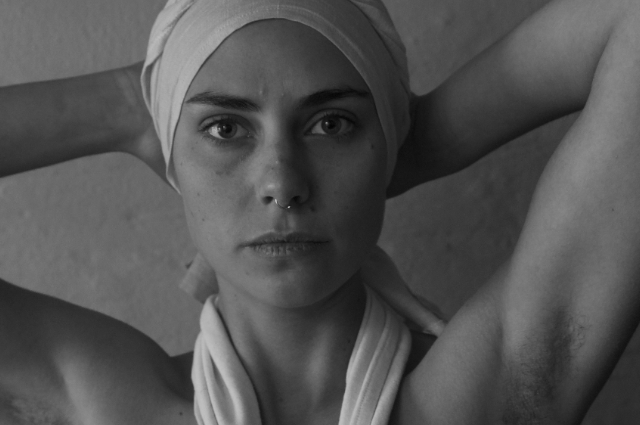
Celebrating Body Hair: A Feminist Reflection on Being Unshaven and Unapologetic
I recently saw a content creator's Instagram clip about what it means to be feminine. She emphasised her prominent jawline and acne, but what caught my attention was how openly she displayed her body hair in the clip. I was also deeply aware of the criticism we receive when we embrace our body hair openly. Nonetheless, I felt responsible for sharing the reel after viewing it, as the thought occurred to me that embracing body hair as a woman still felt 'extraordinary'.
I would like to think that for the past four years or more, I have been intentionally identifying as a feminist. My path of learning about body acceptance led me to realise that everyone is beautiful in their unique way. And it occurred to me - Why is the concept of body hair on women tabooed so much, given the fact that hair development is normal? The antiquated idea of body hair as a gender marker is out of date, and it also perpetuates the gender binary.
The Gendered Binary of Body Hair - Exalted by The Beauty Industry
My natural tendency to put my hand down when wearing a sleeveless top or my incessant desire to pull my crop top down contradicts my claims of self-satisfaction. Why is it that, despite years of understanding and agreeing with the criticisms of beauty standards and what they stand for for women?. Knowing the subtle manner in which we, everyday women, depend on the various tools of patriarchal conditioning to lend our femininity some sort of meaning is one thing.
Pitting what we learn against an everyday existence filled with these misogynistic practices that are hard to shake from our daily habits is a whole different story. Aside from obviously showing hairless women to be beautiful, a quick look at body hair removal product advertisements will prove how our visual culture tries to make it sound as if women hate their body hair. This narrative is developed by such sentences as "velvety smooth skin," which are contrasted with the images of laughing young girls and embracing their independence, and by employing adjectives such as "prickly" to define "other bodies."
I had also fallen for this marketing tactic, becoming anxious every time I noticed my hair growing back. Adopting feminine beauty practices is a rite of passage into womanhood for many women, including myself, as if these exterior factors are inextricably linked to our identity as women. My coming-of-age as a girl was more openly characterised by discussions about our appearance than our thoughts.
Despite identifying as a feminist based on my superficial knowledge of the term from social media, this socialisation caused me to begin waxing at an early age. Beyond the traditional assumptions of seeing women to be on level with men in the most basic sense, feminism and embracing body hair as a whole were still taboo topics.
How I became unapologetic in my skin- Embracing my body hair as a feminist
I realised that I had to start somewhere if I wanted to live by my own beliefs and free myself as much as possible. During a period of introspection during the quarantine, as I completed my undergrad education, I let my body hair grow long. Since it was almost impossible to schedule waxing appointments during the pandemic. It felt odd, as if I had a second skin, like I had grown a second skin. How dystopian is it that we reside in a world where women's natural bodies are so heavily stigmatised to the extent that we begin considering the counterfeited and glorified beauty standards of flawless models flaunting their hairless skin as the most natural and think of them as odd enough to transform?
Fortunately, I realised how problematic going down that path would be because of the feminist discourses I had been involved in by then. I was now supporting a school of thought that accepted female bodies for having body hair and questioned the toxic patriarchal norms that normalised it on male bodies, associating it with virility, masculinity, and sex appeal.
My friends and relatives criticised me for abandoning body hair removal techniques, thus, this decision was not without its consequences. I received strange looks and remarks from people as if living as you are is a luxurious choice at all, even though several of my female peers approached me and told me that seeing me embrace my natural body hair gave them the confidence to do the same.
My appreciation for my natural body hair has grown over time, but that doesn't imply I've shed all of my internalised patriarchal conditioning. At least for me, this process of unlearning comes and goes. It is time for us to start envisioning a new world for ourselves, one in which we do not need to observe ourselves as others do to become women, but just exist as we are to be women. There is no simple way to reject the male-constructed ideal of a woman. There are days when I fondly gaze at my razor, and there are days when I feel ravishing in my unshaven arms. I've succeeded in finding a middle ground so far, which is that I would not be shelling out money for hair removal services.
But then I hear a small, betraying voice whispering to me, "What if you do want to shave? You have a right to your body. Since everybody must be free to assert their autonomy, I will not question anyone for choosing not to keep their body hair. However, I will ask myself this question every time I feel the need to remove my body hair: Is my urge to remove it a reflection of my self love and a stellar of body autonomy or is it an action shaped by norms of beauty that were never inclusive and intended to capitalise on women's insecurities?
